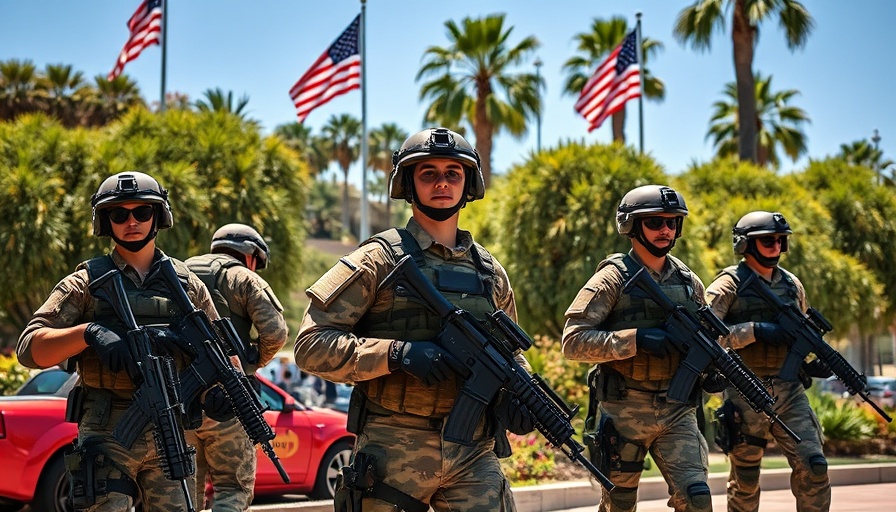
Military Presence in Los Angeles: A Shifting Narrative
As Los Angeles gradually transitions back to normalcy, a significant military redeployment is underway. The Pentagon announced on July 21, 2025, that it will withdraw 700 U.S. Marines, initially deployed to ensure public safety amid rising tensions related to immigration enforcement and civil protests. This decision reflects both a response to the community's sentiments and a recognition of the evolving security landscape in urban America.
Community Voices on Military Deployment
The withdrawal comes after a series of events leading to heightened scrutiny of military involvement in civilian areas. LA Mayor Karen Bass and state Senator Caroline Mejivar celebrated the decision in a press conference, highlighting public sentiment against the military's presence. "They heard from the people of Los Angeles," said Bass, emphasizing the community's call for de-escalation—citing the need for local services like the National Guard to assist with seasonal emergencies rather than civil enforcement.
Mejivar, a former Marine, expressed relief that her fellow service members would return home, suggesting their deployment was unnecessary. This point resonates deeply within communities concerned about militarization and law enforcement tactics aimed at political ends.
The Broader Implications of Militarization
The municipal leaders' reactions, including those of LA County Supervisor Hilda Solis, underscore a growing consensus against military forces deployed in urban settings amid civilian protests. Solis condemned the militarized presence, stating, "There is no place for a militarized presence in our communities—especially when residents are peacefully demonstrating."
Governor Gavin Newsom echoed this sentiment, critiquing the federal government's choice to deploy troops against civilians as excessive and politically motivated. His comments reflect ongoing tensions between local and federal authorities regarding how to address community safety and immigration issues.
Historical Context: A Pattern of Military Deployments
This recent military presence in Los Angeles is part of a broader historical trend where military forces are dispatched to handle civil unrest. A notable instance occurred during the Obama administration when National Guard troops were mobilized during civil rights demonstrations. Each instance raises questions about the appropriateness of military involvement in local governance and civil rights.
In the face of nationwide protests against immigration enforcement and racial injustices, deploying troops often leads to concerns over civil liberties, which heightened debates about law enforcement's role and the balance of power between government levels.
Local Perspectives on Security and Community Safety
Many Angelenos are relieved by the announcement of troop withdrawals, believing that restoring order should not come at the expense of individual rights. The community's trust in local law enforcement is critical, particularly as cities navigate complex social dynamics, including immigration challenges and public demonstrations. This sentiment resonates with many urban areas where populations are diverse, and the need for mutual understanding between authorities and citizens is paramount.
 Add Row
Add Row  Add
Add 




Write A Comment